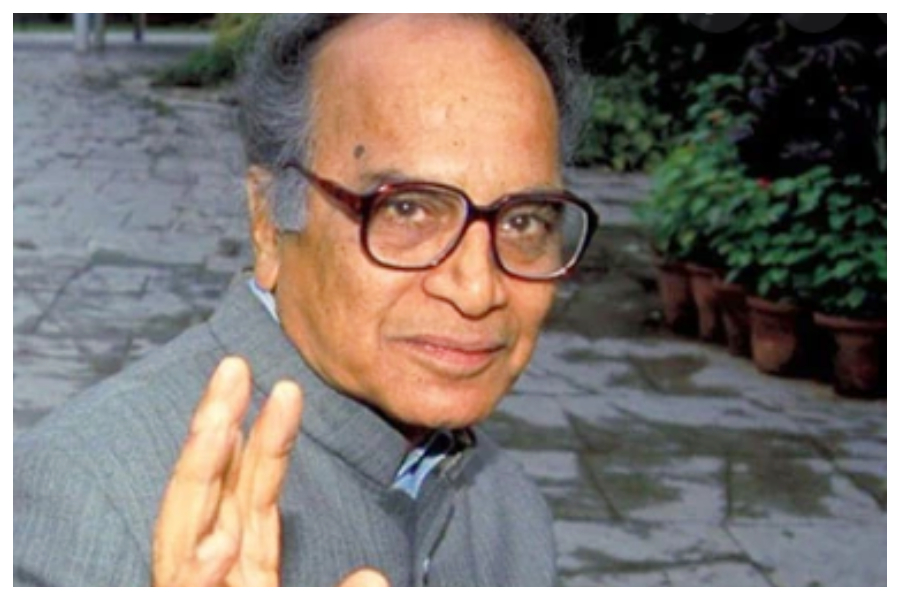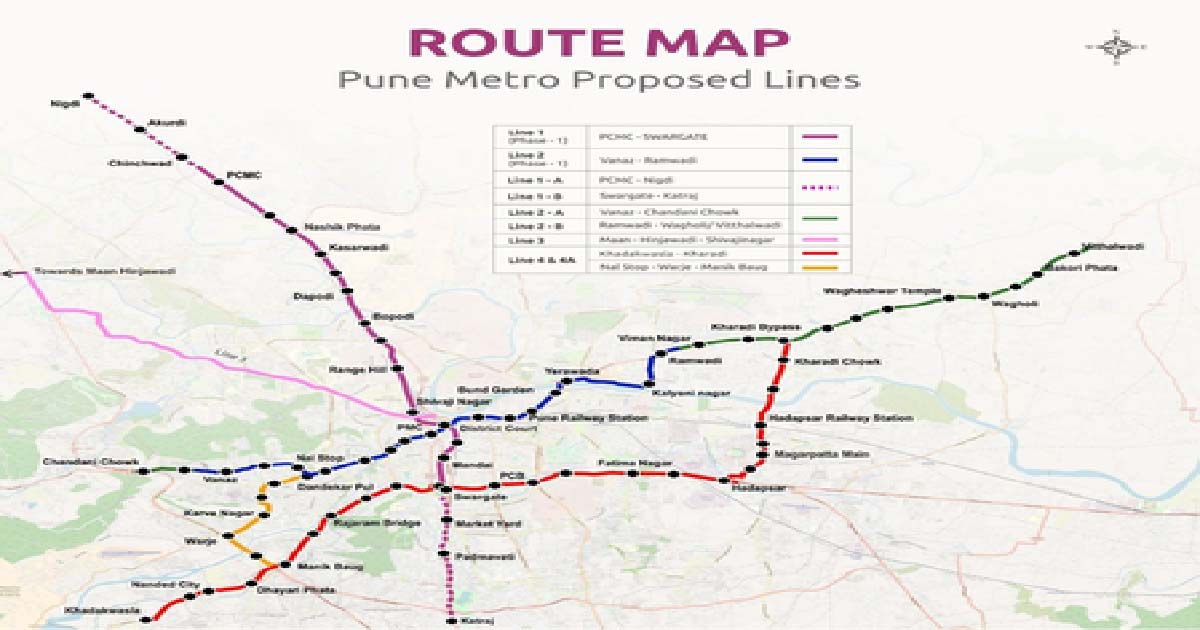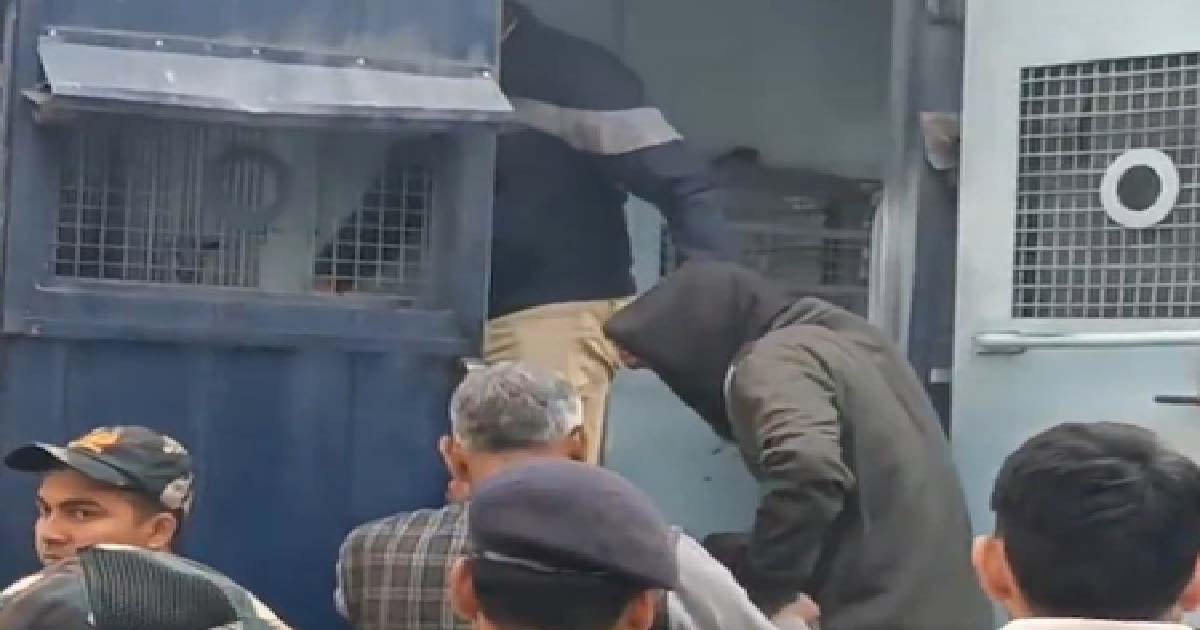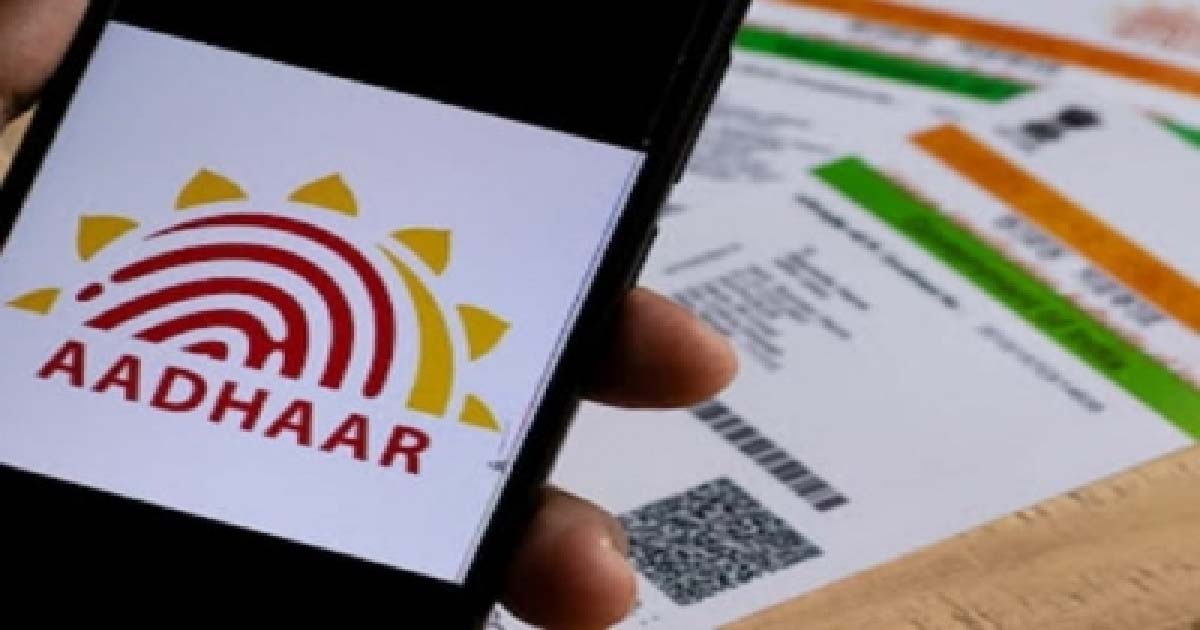National News
Did Jagmohan really fail as J&K Governor in 1990?

Did Jagmohan Malhotra fail as the Governor of Jammu and Kashmir during his second term when militancy blew out of control in 1990?
The answer to this question may be difficult, but it is not impossible to find.
Rubaiya Sayeed, the daughter of Mufti Mohammad Sayeed, was kidnapped by the JKLF on December 8, 1989. Mufti Mohammad Sayeed was the country’s Home Minister and his political arch-rival, Farooq Abdullah, was the Chief Minister of the state that time.
It is widely believed that Abdullah did want to agree with the release of five top JKLF leaders who were in prison in exchange for Rubaiya’s safe release by her abductors.
Abdullah insisted that accepting the JKLF demand would give a major boost to militancy and create a congenial atmosphere for future kidnapping by the militants.
Mufti Sayeed and his family members asserted that by refusing to release the JKLF prisoners, Abdullah was trying to settle a longstanding political grudge against Sayeed.
It was against this background that the Central government headed by V.P. Singh sent Jagmohan as the new Governor of the state.
Jagmohan took office on January 19, 1990, and Abdullah resigned as the Chief Minister the same day.
It is common knowledge that had Abdullah not resigned, Jagmohan would have dismissed his council of ministers.
A huge Pro-Azadi procession was carried out in Srinagar and the security forces intercepted the procession in Gaw Kadal area on January 21, 1990.
Fifty protesters were killed in firing by the security forces in Gaw Kadal and the incident happened barely two days after Jagmohan assumed office.
It is believed that the Gaw Kadal procession had a large number of Avdullah’s supporters, who found an occasion to vent their anger against the appointment of Jagmohan as the state’s Governor.
A large majority of top brass in the local police and the civil administration belonged to the loyalists of the Abdullah family. There was a total non-cooperation by the local officers with Jagmohan and his advisors.
This forced Jagmohan to quickly bring some senior police and civil officers from outside to re-establish the writ of law.
During this period, militants killed Mirwaiz Molvi Mohammad Farooq in his Nigeen residence in Hazratbal area of Srinagar. Militants believed that Mirwaiz was negotiating peace with the Governor’s administration.
The funeral procession was mishandled by the local police and the state intelligence totally failed to alert Jagmohan that militants had joined the funeral procession.
Outside the Islamia College, Central intelligence agencies said, militants opened fire at a CRPF bunker.
In panic, the security forces fired directly at the funeral procession and in this incident, 60 people were reportedly killed on May 21, 1990.
Jagmohan had to face the wrath of the same Central government that had sent him as the Governor of the state for the second term since he had proved himself as the most popular Governor during his first term.
Following a hostile administration, the anger of the separatists supported by the activists of the National Conference and with hardly any time to put his act together, Jagmohan was recalled by the Centre and General Krishna Rao was rushed to replace him.
The question whether Jagmohan really failed as the Governor of J&K during his second term has a logical answer.
Jagmohan hardly had the time to re-establish the authority of an administration that had spinelessly surrendered before the separatists.
It was literally a one-man show as Jagmohan found every wing of his administration infiltrated by the anti-nationals and their sympathisers.
It is said that their supporters in the local intelligence took away secret documents from official files and gave their copies to the militants to identify their targets.
In some cases, the separatist loyalists acting in absolute haste kept photocopies of the files and instead gave the originals to the militants.
Faced with these realities, four months were no time for Jagmohan to either prove himself or reclaim the authority of a crippled administration.
He was failed by the very hands with which he was supposed to succeed.
Business
Union Cabinet approves Pune Metro Rail Project Phase 2 with Rs 9,857 crore outlay

New Delhi, Nov 26: In a major boost for the public transport network in Pune, the Union Cabinet, chaired by Prime Minister Narendra Modi, on Wednesday approved Line 4 (Kharadi–Hadapsar–Swargate–Khadakwasla) and Line 4A (Nal Stop–Warje–Manik Baug) with Rs 9,857.85 crore outlay under Phase 2 of the Pune Metro Rail Project.
According to the Cabinet, this is the second major project approved under Phase-2, following the sanction of Line 2A (Vanaz–Chandani Chowk) and Line 2B (Ramwadi–Wagholi/Vitthalwadi). With this latest approval, Pune Metro’s network will expand beyond the 100-km milestone, a significant step in the city’s journey towards a modern, integrated, and sustainable urban transit system.
Spanning 31.636 km with 28 elevated stations, Line 4 and 4A will connect IT hubs, commercial zones, educational institutions, and residential clusters across East, South, and West Pune.
The project will be completed within five years at an estimated cost of Rs 9,857.85 crore, to be jointly funded by the Centre, the Maharashtra government, and external bilateral/multilateral funding agencies.
These lines are a vital part of Pune’s Comprehensive Mobility Plan (CMP) and will seamlessly integrate with operational and sanctioned corridors at Kharadi Bypass and Nal Stop (Line 2), and Swargate (Line 1).
“They will also provide an interchange at Hadapsar Railway Station and connect with future corridors towards Loni Kalbhor and Saswad Road, ensuring smooth multimodal connectivity across metro, rail, and bus networks,” a Cabinet communique said.
The project will be implemented by the Maharashtra Metro Rail Corporation Limited (Maha-Metro), which will carry out all civil, electrical, mechanical, and systems works.
Pre-construction activities such as topographical surveys and detailed design consultancy are already underway, according to the Cabinet.
According to projections, the daily ridership on Line 4 and 4A combined is expected to be 4.09 lakh in 2028, rising to nearly 7 lakh in 2038, 9.63 lakh in 2048, and over 11.7 lakh in 2058.
Of this, the Kharadi–Khadakwasla corridor will account for 3.23 lakh passengers in 2028, growing to 9.33 lakh by 2058, while the Nal Stop–Warje–Manik Baug spur line will rise from 85,555 to 2.41 lakh passengers over the same period.
These projections highlight the significant growth in ridership expected on Line 4 and 4A over the coming decades.
With Line 4 and 4A, Pune will not just get more metro tracks but will also gain a faster, greener, and more connected future. These corridors are designed to give back hours of commuting time, reduce traffic chaos, and provide citizens with a safe, reliable, and affordable alternative.
Crime
Red Fort blast: Accused Soyab sent to 10-day NIA custody

New Delhi, Nov 26: The National Investigation Agency (NIA) was granted a 10-day custody of Soyab, the accused in the Delhi terror blast case, who was arrested in Faridabad earlier on Wednesday.
Soyab was presented before the Patiala House Court, which approved his transfer to NIA custody for 10 days.
Additionally, another key accused, Aamir Rashid Ali, had his NIA custody expiring on the same day. He was also presented before the court, which extended his custody by an additional seven days.
The NIA, earlier in the day, arrested Soyab, a resident of Faridabad’s Dhoj, for harbouring terrorist Dr Umar Muhammad, also known as Umar Un Nabi, immediately before the Delhi terror bomb blast.
Soyab is the seventh person to be arrested in connection with the case.
According to the NIA, he not only harboured Umar before the attack but also provided logistical support crucial to the execution of the November 10 car bombing near the Red Fort that killed several people and left many others injured.
Before this arrest, the NIA had taken six of Umar’s close aides into custody as part of ongoing investigations under case number RC-21/2025/NIA/DLI.
The NIA stated that it is actively pursuing multiple leads related to the suicide bombing and has been conducting coordinated searches across several states with the assistance of local police forces. The agency said its objective is to identify and apprehend all members linked to the larger terror network responsible for the attack.
Meanwhile, ongoing investigations have revealed chilling details about terrorist Umar’s methods and preparations.
According to interrogation inputs from arrested members of the terror module, Umar maintained what investigators describe as a “mobile workstation” — a large suitcase containing bomb-making tools, chemical compounds and containers. He carried it with him wherever he went.
Umar, a medical professional associated with Al-Falah University in Faridabad, reportedly conducted chemical tests in his room on campus before creating the final Improvised Explosive Device (IED).
One of the arrested suspects, Dr Muzamil Shakeel, also affiliated with the same university, confirmed to interrogators that Umar experimented with substances that were later used in the blast.
Business
Assam saw major drop in child marriage cases under BJP govt: CM Sarma

Guwahati, Nov 26: Assam Chief Minister Himanta Biswa Sarma on Wednesday underscored a “major turnaround” in the state’s battle against child marriage, saying a combination of stringent enforcement and systemic reforms has led to significant declines in the underage marriages and boosted legal accountability.
CM Sarma claimed that according to NFHS‑4 (2015-16) data, 31.8 per cent of women in Assam aged 20–24 were married before turning 18 – a rate that exceeded the national average.
Moreover, district-level fact sheets had recorded alarming prevalence in districts such as Dhubri, South Salmara, Barpeta and Nagaon, as high as 40–55 per cent.
However, the state now claims a decisive shift. Between 2023 and 2024 alone, more than 8,600 arrests were made in coordinated crackdowns under both the Protection of Children from Sexual Offences Act (POCSO) and the Prohibition of Child Marriage Act (PCMA).
According to the Chief Minister, in 2022 the number of cases registered stood at 224, sharply up from just 149 in 2021, indicating a steep rise in enforcement.
CM Sarma said, “Beyond arrests, Assam has formed district-level task forces, headed by superintendents of police, to track and intercept impending child marriages. Community-level workers – including ASHAs, Anganwadi staff and schoolteachers – are now required to report suspected cases in real time.”
“Several districts have also reportedly established digital databases and child-protection tracking mechanisms,” he added.
The CM claimed that these measures have borne fruit: In hotspot districts, the incidence of child marriage fell by 8–17 per cent within a year, and more than 3,000 planned child marriages were prevented in 2023–24 alone.
Notably, the Assam government’s recent actions – from sustained crackdowns to setting up institutional safeguards – reflect a far more aggressive stance on child marriage than seen in earlier years, when the practice was largely treated as a social issue rather than a crime.
-

 Crime3 years ago
Crime3 years agoClass 10 student jumps to death in Jaipur
-

 Maharashtra1 year ago
Maharashtra1 year agoMumbai Local Train Update: Central Railway’s New Timetable Comes Into Effect; Check Full List Of Revised Timings & Stations
-

 Maharashtra1 year ago
Maharashtra1 year agoMumbai To Go Toll-Free Tonight! Maharashtra Govt Announces Complete Toll Waiver For Light Motor Vehicles At All 5 Entry Points Of City
-

 Maharashtra1 year ago
Maharashtra1 year agoFalse photo of Imtiaz Jaleel’s rally, exposing the fooling conspiracy
-

 National News1 year ago
National News1 year agoMinistry of Railways rolls out Special Drive 4.0 with focus on digitisation, cleanliness, inclusiveness and grievance redressal
-

 Maharashtra1 year ago
Maharashtra1 year agoMaharashtra Elections 2024: Mumbai Metro & BEST Services Extended Till Midnight On Voting Day
-

 National News1 year ago
National News1 year agoJ&K: 4 Jawans Killed, 28 Injured After Bus Carrying BSF Personnel For Poll Duty Falls Into Gorge In Budgam; Terrifying Visuals Surface
-

 Crime1 year ago
Crime1 year agoBaba Siddique Murder: Mumbai Police Unable To Get Lawrence Bishnoi Custody Due To Home Ministry Order, Says Report












